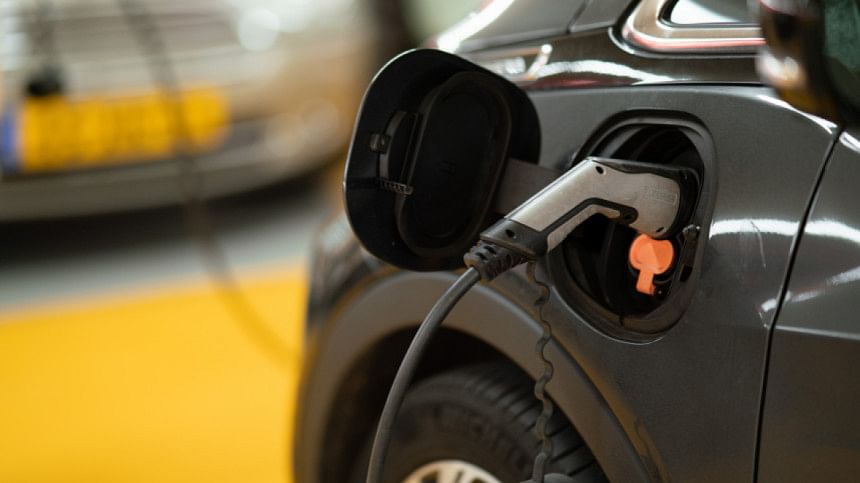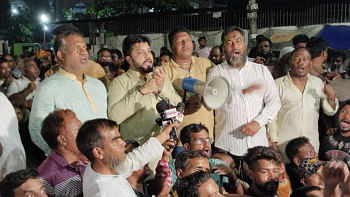Transition to ‘electric mobility’ a timely need

We believe that the most significant opportunities lie in the 2/3-wheeler and public transport sectors, as they make economic sense and serve the majority.
Bangladesh should accelerate the transition to electric mobility in public transport as electric vehicles present a viable solution to significantly reduce vehicle emissions in cities and reduce reliance on fossil fuel imports for transport, said experts at an event yesterday.
With the transport sector responsible for approximately 25 percent of global CO2 emissions, decarbonisation is crucial to achieving the Paris Agreement's objectives to limit global warming to well below 2°C compared to pre-industrial levels, they added.
They were speaking at a sub-regional meeting and capacity workshop on accelerating the transition to electric mobility in Asia and the Pacific at a city hotel.
Electric mobility uses one or more electric motors to generate transportation. Currently, this type of mobility offers solutions for small trips and low weight (with bicycles, scooters and electric motorcycles) as well as long trips and heavy weight (with electric public transport vehicles).
Electric vehicles do not emit any greenhouse gases, so there is no atmospheric pollution. In addition, they make virtually no noise, eliminating noise pollution as well, said speakers.
United Nations Economic and Social Commission for Asia and the Pacific (ESCAP), in collaboration with the Road Transport and Bridges Ministry and the World Bank, organised the workshop.
A month ago, the government approved a guideline for the registration and operation of electric vehicles to have at least 30 percent electric vehicles out of the total number of vehicles in operation by 2030. However, only 34 EVs have so far been registered by Bangladesh Road Transport Authority.
The transport sector is the largest consumer of petroleum products in Bangladesh, accounting for 63 percent of consumption. Unfortunately, the sector is also responsible for 15 percent of the country's total emissions, making it the second-highest domestic source of energy-related emissions and one of the fastest-growing in the region.
"We believe that the most significant opportunities lie in the 2/3-wheeler and public transport sectors, as they make economic sense and serve the majority," said World Bank Operations Manager Dandan Chen.
Speaking as the chief guest at the workshop, Road Transport and Bridges Minister Obaidul Quader said the programme is time-befitting as the world is facing the adverse effect of climate change.
With ABM Amin Ullah Nuri in the chair, Power Division Secretary Habibur Rahman, and Road Transport and Highway Division's Additional Secretary Neelima Akhter also addressed the programme.
Experts from various agencies attended the event and presented papers.
The workshop's main objectives were to create awareness of EV development in the sub-region and Bangladesh, enhance the capacity of policymakers, encourage regional cooperation mechanisms on low-carbon transport, and facilitate discussions on policy recommendations.

 For all latest news, follow The Daily Star's Google News channel.
For all latest news, follow The Daily Star's Google News channel. 



Comments